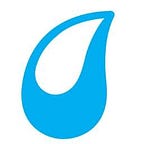Delivering health for all with taps and toilets in Nigeria’s health centres
Water, sanitation and hygiene must be included in the health conversation.
By Michael Ojo, Country Director, WaterAid Nigeria
In so many ways, Nigeria is a study in contrasts. An ambitious middle-income country and Africa’s largest economy, it also struggles to provide some of the most basic of services to its residents.
An estimated one third of Nigerians do not have access to clean water, and two thirds do not have safe private toilets. And one in three healthcare facilities does not have access to water, according to a WHO landscape survey.
If we are to achieve better health for everyone, everywhere, we need universal health coverage — the ability for all to have good health, and to get the healthcare they require, without incurring financial hardship.
This also means looking at what underpins good health: their environment, the air they breathe, the food they eat, and whether they have clean, safe water to drink, a decent private toilet to relieve themselves in, and a way to keep themselves and their surroundings clean and hygienic. At the moment, we are failing on this mission.
Imagine it for a moment: a health centre with gallons of water in jerry cans lined up outside, purchased because the taps are dry. Lab technicians left to wash out samples of faeces or urine in a hospital sink using bottled water. And very ill patients or pregnant women with no choice but to use a single, fetid, overflowing squat toilet.
This is the reality for healthcare staff in many health centres around Abuja, where WaterAid documented some of the realities of their working days trying to treat patients with dignity.
Compounding the risk for patients and healthcare professionals is Nigeria’s fast-growing struggle with antimicrobial resistance. Of the 10 million deaths from antimicrobial resistant infections predicted by 2050, an estimated 4.1 million would likely be in sub-Saharan Africa, where clean water, good sanitation and rigorous hygiene practices, which are critical to preventing infections in the first place, are often lacking.
People don’t want to go to dirty clinics, so they are more likely to try to treat themselves with antibiotics without a prescription, resulting in misuse or overuse. Doctors and nurses may prescribe antibiotics as a preventative measure, standing in for the good hygiene they are unable to provide. And we have known for decades that adequate water supplies, good sanitation and rigorous hygiene practice can help prevent infection in the first place, reducing the overall need for antibiotics.
WaterAid is lobbying governments, donors and international organisations to change the situation not only in Nigeria but across the developing world. We are urging healthcare professionals to do the same, to ensure that everyone, everywhere has access to clean water, decent toilets and proper hygiene — whether they are at home, at school or in a hospital.
The UN Sustainable Development Goals commit us to ensuring everyone has access to safe water, sanitation and hygiene by 2030. We want to see healthcare facilities prioritised — no new hospitals or clinics should be built without these essential facilities.
Protecting people from disease and providing dignified, clean and safe care, is central to achieving universal health coverage in Nigeria and beyond.
On Universal Health Coverage Day, WaterAid is asking healthcare professionals to sign our global petition and to lobby their governments for safe, reliable access to water, sanitation and hygiene in all health facilities around the world.
For more information and to sign the petition, visit wateraid.org/healthprofessionals
